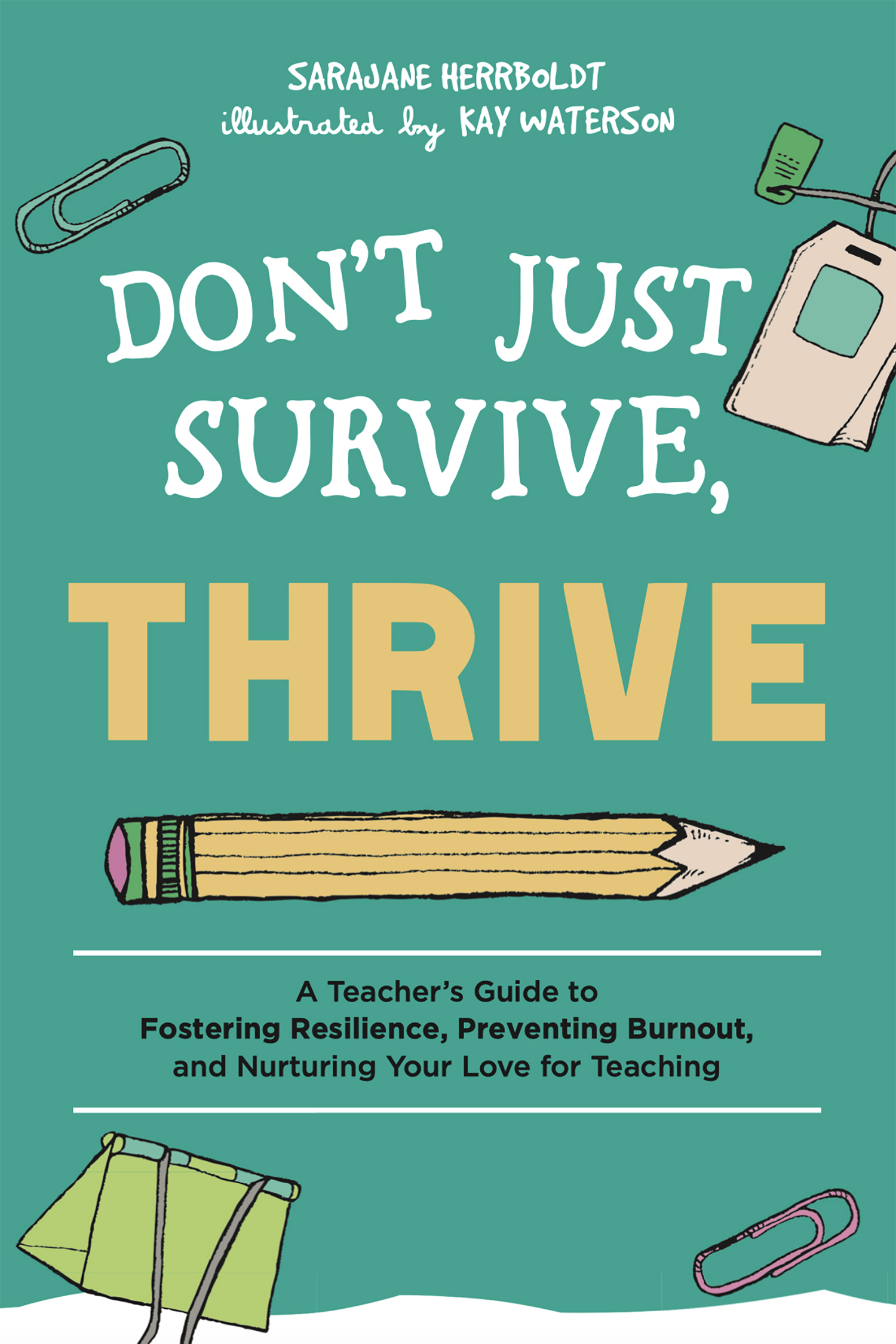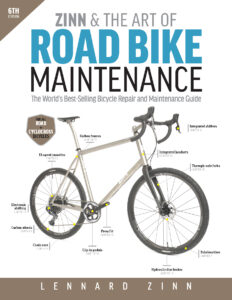
Avoid Teacher Burnout, Regain Your Resilience with Don’t Just Survive, Thrive
- Book Sample /
- Education
- Self-Help
The following is an excerpt from the new book Don’t Just Survive, Thrive, written by former educator SaraJane Herrboldt to help you manage stress, practice resilience, and avoid teacher burnout—all while living through a global pandemic.
Education in a Pandemic
As I sit to write this we are nearing the one year anniversary of when life, as many of us knew it, was disrupted and altered by the COVID-19 global pandemic. Quite suddenly we found ourselves thrown into a pandemic that disrupted our routines, blurred the lines between home and work boundaries, forced us to learn and embrace technology in new ways, and perhaps experience moving through a cycle of teaching students in a hybrid model, then virtually, and then back to hybrid. Change seems to be about the only constant as the weeks turned into months, and months now lead up to a year. How many of you feel as though you’ve spent the last year surviving, barely able to keep your head above water? I imagine very few of us anticipated all that we would be asked to navigate, or that we would still be in the midst of a pandemic, moving through continued changes. Yet, here we are.
These past few weeks I’ve heard several people saying, “What am I doing wrong? Why is this still so hard?” As though after twelve months we should have this all figured out and all the problems solved. It’s simply not that easy. It’s not hard because you are doing something wrong. It’s hard because this is an incredibly challenging and difficult time we are moving through, and let’s be honest, being an educator wasn’t necessarily a walk in the park before the pandemic. Being an educator is hard work. I was concerned for those who were feeling overwhelmed, stressed, and close to burnout prior to the pandemic. Now, I am even more concerned with how we will navigate the demands of the job along with the additional stress of a pandemic and the many other circumstances that remain beyond our control.
The Ripple Effects
It is true that stress is something we all experience. How we navigate stress is impacted by the way in which we view our stress, the degree of stress we experience, the way in which we carry that stress, and how it shows up within our bodies. Some forms of stress, at times, can be helpful. This is the “good” part of stress. It activates our adrenaline and cortisol and gets us moving to take action, try harder, and meet deadlines. It’s often thought of as what helped us survive the early days of caveman living. However, stress is primarily meant to help us deal with short-term problems, not frequent or ongoing long-term ones. As our stress load increases, our energy is depleted and we may feel as though things become unmanageable even more quickly.
Over a long period of time, the impact of continual stress begins to take its toll. The ongoing activation of the stress response means that the body is continually exposed to adrenaline and cortisol. This constant, consistent exposure is considered chronic stress, and chronic stress puts your health at risk and makes you more susceptible to experiencing burnout.
Encountering persistent symptoms of stress, overwhelm, fatigue, depression, anxiety, frustration or apathy, can be an indication that we are likely experiencing burnout. We know that when we shift into this state, it not only has serious negative effects that impact us as individuals, but on the collective as well.
So how do we respond and curb the impact of burnout? Well, to begin we need to start talking about it. We need to speak with our colleagues, a trusted friend or family member, perhaps even a professional and seek support as we move through the demands and stress of our jobs and daily lives. Then we need to actively engage in practices that build resilience.
Rising Resilient
“My mission in life is not merely to survive, but to thrive.” ~Maya Angelou
So what is resilience, and how can we get it? Some refer to resilience as the ability to bounce back and return to a state of normalcy. While this may be true to a certain degree, we will encounter some experiences throughout our lifetime that we cannot just bounce back from due to the long-term impact of some catastrophic events. Resilience is not an absence of pain, struggle, or hardship. In fact, resilience is more about how you cultivate strength to move through and cope with setbacks, obstacles, or barriers.
While I do think that resilience is in part demonstrated when we keep going or persevere, especially during difficult circumstances, I do not think it means we must push ourselves through unbearable pain in order to persevere. When we view resilience in this manner, we set ourselves up to feel trapped, hopeless, and helpless. We are holding ourselves to unrealistic expectations and standards if we think of a resilient individual as one who never needs to step away, doesn’t give up, and doesn’t get overwhelmed by stress or trauma. I worry that in this mindset, we are setting ourselves up for a lack of compassion and support. We can’t always do it all. It’s okay to ask for help and take a break along the way when dealing with difficult things so that we can keep coming back. We have to be brave enough to acknowledge our humanity.
Resilience helps us thrive even in the midst of struggle and constant change. Practicing resilience is not going to necessarily always be easy, nor will it allow you to control every circumstance you encounter. But resiliency will help you determine how you approach each circumstance and challenge.
To increase resilience, we must first understand it and then practice it again and again. Resilience resides within all of us, and its presence within our lives often depends on how we cultivate and nurture it over the course of our lifetime. Another piece of good news, we never reach a point where it is no longer accessible to us. However, it may become harder to attain if we do not engage in practices that aid in building resilience on a regular basis. Caring for ourselves can be viewed as an act of resistance or an act of recovery. We are the CEO of our well-being.
We decide our amount of resiliency by choosing to cultivate it or by letting things lie stagnant and becoming disengaged. So where does one begin?
By building awareness, especially self-awareness.
Paying attention to ourselves helps us navigate not only the external world, but the internal one as well. If we are unaware of how we feel when we are in a particular state of being, it becomes more challenging to properly respond in order to get the very things we need to thrive and to meet the needs of those around us.
By caring for ourselves and meeting our basic needs.
Maslow’s hierarchy of needs demonstrates how our needs build upon one another. Unless we can meet our needs at the most basic level, like sleep and nutrition, it is unlikely that we will be successful in meeting our higher-level needs. True self-care is knowing who you are and how you are.
By connecting with our mind and our body.
The mind and body are intricately connected. To care for one allows us to better care for the other. When we give ourselves the time and space through meditation or yoga to notice how we are breathing and what is going on inside, we also give ourselves a choice. We now have the choice to continue or to do something else.
To be a resilient educator, you must know when you need to choose yourself first. It means you must know your limits and take time to care for yourself so that you can care for others. I long to find the exact right words to offer, so educators can feel seen, heard, and acknowledged for the complexity, joy, and heaviness of the work they do. I want you to know that your struggle and suffering has not gone unnoticed. However, I also want to acknowledge that we all face struggles and hardships throughout our lifetime. The very presence of this does not mean that you are doing something wrong, but rather, it means that you are human. So, breathe deep and don’t lose hope. You’ve got this, you can learn to become resilient so you can thrive and not just survive!
Don't Just Survive, Thrive
Stay inspired and motivated with this ultimate teacher self-care action plan designed to help educators avoid workplace stress and burnout. Any educator will tell you it's no surprise that 50% of teachers leave education within their first 5 years. Being a teacher is deeply rewarding and inspiring, but keeping that big picture in
Learn more






